<em>Modern Drummer</em> Education Team Weighs In On: Learning Other Instruments
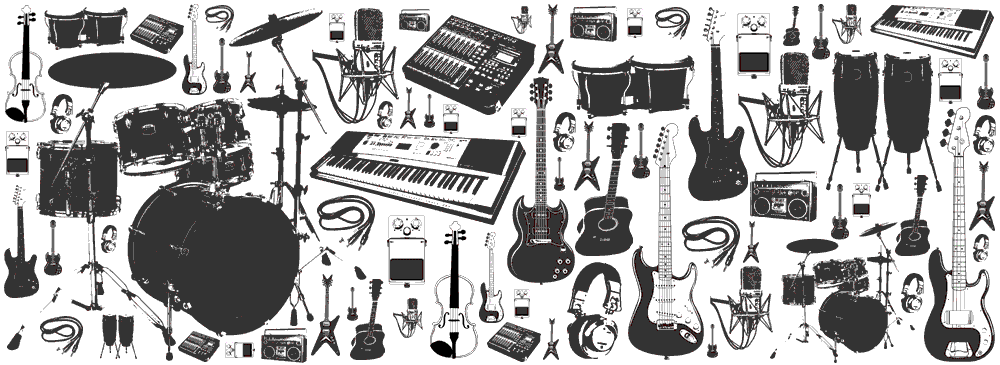
We asked the members of the Modern Drummer Education Team if they felt that it’s important for drummers to learn to play other instruments (piano, bass, guitar, etc.), or should they focus on honing their craft at the kit exclusively? Here’s what they had to say.
Joe Bergamini
I think learning another instrument can be a great advantage for any drumset player. Being able to contribute as a songwriter to your band, compose material for your own recordings, work from other musicians’ charts on gigs or recordings where drum charts are not provided, and being able to serve as musical director or conductor are all situations that would be difficult or impossible to take part in without the knowledge of harmony and theory.
To that end, I think piano seems to be the best instrument for a drummer to gain understanding of musical theory for practical purposes. Taking piano lessons is something that I have always wanted to do, but in my case, I have always felt that my drumming needed more work, and so I have never taken that step. Someday! Advertisement
For serious young students who might be reading this, be aware that to major in drums or jazz performance at a university, you will be taking courses in music theory, and you will need to possess and exhibit a basic understanding of theory. My exposure to this came in the form of playing timpani and mallet instruments in high school, and I would say that playing some of those instruments is a bare minimum requirement for anyone planning a college major in percussion or drums.
I would also say that although it is important to understand music theory, someone who is still learning the drumset must put a priority on the many hours of practice that it takes to come close to having a professional level of skill on this instrument. If the drums are your passion, focus your practice on the drums, and add the music theory and other instruments practice to complete and vary your curriculum of study.
Jayson Brinkworth
In my own experience, having played other instruments and singing, I have seen the direct benefit of being diverse. I feel that understanding how a guitar or bass interacts with the drums allows me to be more selective in the parts I play and how it will relate to the music being performed. A big lesson I learned years ago was playing acoustic guitar with different drummers and asking myself if my drumming was making the other players feel comfortable and able to play their best. Advertisement
As a singing drummer, I have always had admiration for the greats (Don Henley, Phil Collins, Levon Helm, Karen Carpenter, and more). I always felt that they had more connection to the inner workings of the songs than just the drum parts. In my own playing, I try to support the whole song with the choices I make and the things I do and DO NOT play. The only way I feel I am able to work on making better choices is to have an understanding of how all of the instruments and vocals are functioning in the piece of music.
Also, many of my favorite drummers are also songwriters and producers, which I feel allows them to really get inside the arrangement of a song and make the right choices in the drum parts they play. I spend a lot of my own personal practice time learning how a great song is supported on the drums. I also live by a quote from Nashville session great Chad Cromwell, “I don’t play drums on songs; I play songs on the drums.”
Steve Fidyk
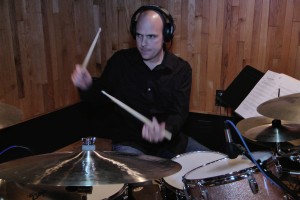
photo by Mike Monseur
For most of my youth, the only goal and desire I had was to be the best drummer I could possibly be. I had no other aspirations. It wasn’t until I majored in music education as an undergraduate that I was expected to play other instruments. I still recall first semester, freshman year when I had piano class. As you might imagine, I struggled miserably (Theory 1 wasn’t a treat either!). Advertisement
I attended a small liberal arts college in my hometown, and it didn’t have a dedicated drumset teacher at the time. My hourly lessons consisted of concert/rudimental snare drum, timpani, xylophone, and marimba etudes and exercises. My percussion teacher, Bob Nowak, stressed sound production and reading ability, two fundamental attributes I’m happy I worked on at a time in my life when I had very little responsibility.
I believe that in order to command the respect of your band mates, it’s important to have additional skills outside of drumming. I play functional piano at best (simple chord voicings with my left hand and melodies with my right hand). This enables me to write tunes for my small group as well as big band arrangements for the Army Blues. Having some knowledge of piano also allows me to be a better accompanist to the players I’m working with. For me, it’s all about expanding your awareness, being open minded, and pushing yourself to the next level—musical revitalization.
Marko Djordevic
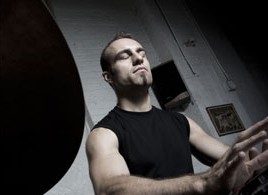 As a performer, I happen to believe that no matter what instrument a musician plays, it would be useful for him or her to have some level of functional knowledge of the drums and the piano. The initial explanation is simple: the piano has it all laid out very clearly when it comes to melody and harmony. After all, the music theory which stems from classical music and serves as the basis for the kind of “jazzed up” version of theory we’ve come to utilize in contemporary music is all but drawn onto the keyboard. On the other hand, the drums are the corner stone of the music’s rhythmic movement, and though I may be biased when saying this (I am a drummer after all), it is the instrument that I feel is being developed more than any other in today’s music. Finally, rhythmic sophistication in its many forms is the playground on which most creative music is being built upon these days; it is also a field with perhaps more possibilities left to explore when compared to the other two building blocks of music, melody, and harmony. It is these ideas and concepts that brought me to my initial statement about the usefulness of some functional knowledge and skill on piano and drums, regardless what your principal instrument happens to be.
Advertisement
As a performer, I happen to believe that no matter what instrument a musician plays, it would be useful for him or her to have some level of functional knowledge of the drums and the piano. The initial explanation is simple: the piano has it all laid out very clearly when it comes to melody and harmony. After all, the music theory which stems from classical music and serves as the basis for the kind of “jazzed up” version of theory we’ve come to utilize in contemporary music is all but drawn onto the keyboard. On the other hand, the drums are the corner stone of the music’s rhythmic movement, and though I may be biased when saying this (I am a drummer after all), it is the instrument that I feel is being developed more than any other in today’s music. Finally, rhythmic sophistication in its many forms is the playground on which most creative music is being built upon these days; it is also a field with perhaps more possibilities left to explore when compared to the other two building blocks of music, melody, and harmony. It is these ideas and concepts that brought me to my initial statement about the usefulness of some functional knowledge and skill on piano and drums, regardless what your principal instrument happens to be.
Advertisement
But, let us move for a moment from the more general world of theory, concepts, and ideas toward the realities of a life as a competent, functional drummer. I believe that the piano is our biggest ally as that perfect tool on which we find out what all of the theory actually sounds like. For example, sitting at the piano and getting to know what musical intervals sound like is one of the most important things you can do. I can’t even begin to think how many times I have been saved by finding my spot in chord charts (especially longer ones) by hearing the bass motion and looking for the place on the page where I would encounter the ink which corresponded with what I was hearing. Also, doing some harmonic ear training on the piano will make you aware of colors and vibes that different chords have. This comes in handy especially when improvisation is taking place and the piano or guitar are playing what is known as extended harmony, moving in ways that were not written out by the composer of the tune. If the bass player follows suit, we can’t rely on the predictable “song-like” bass movements anymore either. Without enough harmonic savvy, a drummer can be thrown out of the loop by becoming harmonically disoriented in moments like this. Finally, using the piano in the most basic way, to play the melody of a tune we are working on and thus reinforcing the process of learning new music, should certainly not be looked over.
As a composer who happens to be a drummer, the knowledge of the keyboard and my interest in harmony have been pivotal in rounding out my ability to express myself through writing original music. And although I do not think that you actually have to play an instrument to be able to create music from scratch (you can come up with it and then sing it to those who play them), chances are that by using the piano you will be able to get a good idea of what that “thing going around your head for days” would actually sound like, as well as all the places you could potentially take it. You can test the melody against various bass notes and thus find the harmony to go with it. Then you can tinker with the voicings for an even more specific sound.
Lastly, with the advent of sequencers back in the late ’70s and early ’80s which turned into today’s home recording software of the Garageband variety, if you have some piano skill you can easily create what I call an audio chart to go along with the actual written chart (if you have one). By using the keyboard to record all of the parts (including drums) you can actually create a working version of your new song. The upside of this is that when bringing the new song into the first rehearsal, you are ahead of the game because your band mates can actually hear what it’s supposed to sound like, as opposed to having to figure everything out from the page, which is a great advantage. Not only does it save time, but it also promotes the idea of working more organically towards recreating those sounds that you had in your head when you were inspired to compose the piece in the first place. Advertisement
As a bandleader, I wish I could say I had the ability to play all of the instruments that I call upon when making my music come to life. The reality is that my knowledge is mostly theoretical, apart from the trumpet (which I played as a child) and the piano, which I have been trying to keep up with since high school. Still, the more you know about each individual instrument, the better you will be able to convey your ideas to other musicians (just think of the times someone tried to explain to you a drum idea they were hearing in their head).
Another aspect, which I can’t stress enough, and which is available to you only if you happen to have some skill on an instrument other than drums, is that you can jam with another drummer! I have been very humbled at times when, while trying to play a solo on the keys, I would hear the drummer do things that I might have done, which were really not working for me as a soloist. Time issues and inconsistencies become more obvious if you are trying to lock-in the groove. In a nutshell, it is a great way to realize some things about your own drumming that may be painful. The good news is that it is only after being made aware of the weaknesses that you are able to actually do the work needed to fix them.
Ultimately, though, I do not think that any of what I have laid out so far is absolutely essential for one to be a fine, musical drummer. The one thing we should never forget, however, is that the most important instruments we have are our ears. The development of one’s listening capacity is a sine qua non of musicianship, and it goes without saying that any drummer who cuts corners in this area will have a tough time being considered any more than “that guy who beats the drums,” as opposed to playing the drums as the musical instrument they are. After all, music is about communicating effectively. And communication rests in equal parts on your ability to articulately express yourself and your ability to hear what others are trying to communicate and express. To all who are interested in helpful ideas and concepts for developing their listening ability, seek out the Bob Moses book, Drum Wisdom. It is, in my opinion, the MVP of all drum books out there. Advertisement
Finally, as I was contemplating the question in the title of this piece, I realized that this might be a good spot to take note of the stigma attached to playing our instrument that summons up the cruel portrayal of the drummer as “that guy who hangs out with musicians.” Even this question about the necessity of playing an instrument other than the drums harkens back to our concern about the insufficiency, or even worse, illegitimacy of our instrument. In an interview with the great drummer Art Taylor (check out Taylor’s beautiful book Notes and Tones, made up of interviews with many of the finest jazz musicians of our era), Dizzy Gillespie went so far as to say that he would never entrust a drummer with writing the music and/or leading a band. Now, I have some doubts as to whether it wasn’t all in jest, just some old school roughhousing between two colleagues. (The interviews were intimate and candid; since Taylor was one of the finest jazz drummers of this time he knew his subjects personally and closely, and played with many of them, as well). So, I thought that maybe, just maybe, the famous trumpeter was giving his drummer friend a hard time. I kept asking myself how Gillespie could make a statement of this kind while being well aware of folks like Max Roach, Art Blakey, Chick Webb, Lionel Hampton, to name a few percussionists who excelled at leading a group or composing, or both. Therefore, it is hard to fathom that he would say something so crude and be serious about it. But, even if it was a joke, the old adage says that there well may be an element of truth hidden within.
So, deep down, does everyone harbor latent prejudice towards the drums, including the drummers ourselves? And what of those feelings of musical incompetence and inadequacy, which we all must have felt, especially in the beginning stages? Picture yourself back in that garage, rehearsal studio, or band room. Someone says G minor, or mentions rhythm changes (I thought this meant that there were changes in time signatures, before I learned it was a chord progression named after a tune entitled I’ve Got Rhythm, in which it was famously utilized), or talks about a I IV V chord progression. Truth be told, because of the nature of our instrument, many drummers stay in the dark about things like these, and in many cases there is a feeling of insecurity this brings about.
Marc Dicciani
 In addition to practicing the drums, almost anything and everything a drummer does, either through learning and studying or just doing, is going to have an effect on their drumming skill. Of course, some of these pursuits have a more direct and immediate impact on drumming than others. Some of our daily activities affect technique (exercise, playing sports, weight training), musicality (studying composition, listening to melodic phrasing and soloing of vocalists and other instrumentalists), styles (studying humanities and understanding various world cultures), improvisation (practicing yoga and relaxation techniques, or self-expression through other art forms like drawing and acting), timing (learning tap dancing, body movement, and eurhythmics), and attention/focus (eating and sleeping properly and minimizing stress in our lives).
Advertisement
In addition to practicing the drums, almost anything and everything a drummer does, either through learning and studying or just doing, is going to have an effect on their drumming skill. Of course, some of these pursuits have a more direct and immediate impact on drumming than others. Some of our daily activities affect technique (exercise, playing sports, weight training), musicality (studying composition, listening to melodic phrasing and soloing of vocalists and other instrumentalists), styles (studying humanities and understanding various world cultures), improvisation (practicing yoga and relaxation techniques, or self-expression through other art forms like drawing and acting), timing (learning tap dancing, body movement, and eurhythmics), and attention/focus (eating and sleeping properly and minimizing stress in our lives).
Advertisement
Although learning to play another instrument may be seen as having more influence on our drumming than some of the things mentioned above, I believe it is similar. Some highly successful drummers play other instruments; most do not. Of course if you do learn to play another instrument (or sing or compose) it will have some effect on your drumming, but to what degree depends on your goals and purpose. If I want to study composition so that I’m better able to understand, hear, and intuit musical form and harmonic structure when I’m playing drums so that I may adapt more musically in a situation, then that will likely affect my drumming more than if I study composition and counterpoint because I want to compose music similar to Bach’s Inventions.
I feel that being able to physically and musically play another instrument may not be as important for a drummer as being able to play with those other instruments and to recognize their role in an ensemble. If the goal is to understand music, form, and structure better, then it’s not necessary to learn to play those instruments. Listening intently to other instruments, including voice, and how those musicians phrase, articulate, and develop melodic lines can help inform how you want to develop your own sense of phrasing on drums in soloing, comping, and creating grooves and patterns. One thing I learned from closely listening to other musicians, especially singers, is how to better make use of space in playing and expression, an important and challenging concept in drumming.
If you decide you want to learn to actually play another instrument, which instrument would it be, and why? Some drummers might argue that it should be bass because of the critical interplay required between bass and drums. In order to better know form and structure, maybe you should learn to play piano. I know an excellent drummer who learned to play pocket trumpet (a very compact trumpet) because it helps him with his composing and arranging, which in turn, he says, helps him with his drumming. Once you start down this road, there really is no end. That’s why the choice is a completely personal one and should be based on what you want to do and what interests you, not because it will make you a better drummer. Advertisement
For me personally, learning to play timbales and congas has had an immeasurable effect on my drumming and I absolutely would recommend that to everyone, mostly because of the pleasure I get out of playing those instruments. But is it important? Probably not. Is it helpful? To me, yes. Something else that I recently began doing is painting, which has helped me to visualize and consider balance, structure, and focus in my drumming, and to also think about composition in a non-time-based form of self-expression.
And that’s the point here. Most everything you do is going to affect how you approach drums and drumming. If you do decide to learn to play another instrument, I suggest you do so because your primary goal is just that—to learn to play another instrument. But, I wouldn’t automatically conclude that learning to play ukulele and rock climb on weekends will profoundly improve your drumming. Whatever you decide to do, paint, cook, exercise, or learn to play guitar, know that there is tremendous intrinsic value in doing so, in and of itself. I will argue that there is nothing that will help improve your playing as quickly and as deeply as dedicated focused musical practice and listening on your primary instrument. Whatever you decide, make sure you just have fun doing it.
Do you feel it’s important for all drummers to study Latin music and other musical genres, even if they don’t intend to ever perform those styles? Yes, absolutely! Learning all of these different styles does miracles for developing your vocabulary. A lot of the Latin beats and independence (or coordination) I learned in my younger years fed right into fill and groove ideas in a straight eighth rock/funk context. All of the jazz vocabulary I worked out plays right into a shuffle context, too. If I had just worked on rock/funk/shuffles and the more contemporary stuff that I often play, I would have anywhere near the vocabulary, comfort, and headroom. Advertisement
It’s also of course a good idea to learn all these styles because you can then function in more musical settings and get more gigs. As sensible as that thought is, let me play the devil’s advocate: sometimes if you try to become all things to everybody, you can become nobody to anybody. I believe that by having a niche you are more likely get lots of work if they identify you as a strong player in that niche. I can count on one hand the players that are known for and get calls for playing all styles. Ultimately I’d say, “Strive to be versatile while professionally playing to your strengths.” I doubt you’ll find a heart surgeon who’d get upset at not being called “well rounded.”
Jason Gianni
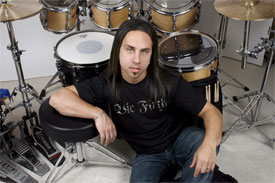 Playing other tuned (or definite pitch) instruments can only be a good idea, but not necessary as the majority of the greatest drummers in the world have proven. I believe that as a drummer you will get more respect from the other musicians you’re working with if you can actively participate in discussions about chord changes and sing parts to them, and that may also help you get some writing credits (money!). Piano would be the instrument I’d recommend first and foremost as all of the notes are easily laid out and the skills there transfer easily to every other instrument. Try it and then follow your gut, you may just fall in love with another instrument as well!
Playing other tuned (or definite pitch) instruments can only be a good idea, but not necessary as the majority of the greatest drummers in the world have proven. I believe that as a drummer you will get more respect from the other musicians you’re working with if you can actively participate in discussions about chord changes and sing parts to them, and that may also help you get some writing credits (money!). Piano would be the instrument I’d recommend first and foremost as all of the notes are easily laid out and the skills there transfer easily to every other instrument. Try it and then follow your gut, you may just fall in love with another instrument as well!
Donny Gruendler
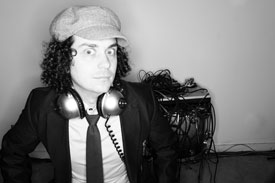 In my opinion, the most musical drummers are those who have viewed melody, harmony, and theory through the study of another instrument. As such (and due to their understanding of song forms, chord progressions, and tonal centers), these individuals are able to sympathize and anticipate what other composers/instrumentalists require from them on the drumkit.
Advertisement
In my opinion, the most musical drummers are those who have viewed melody, harmony, and theory through the study of another instrument. As such (and due to their understanding of song forms, chord progressions, and tonal centers), these individuals are able to sympathize and anticipate what other composers/instrumentalists require from them on the drumkit.
Advertisement
To further clarify, understanding the difference between a rhythm change and modal song will greatly influence your playing and approach to the music. For example, the former has numerous chord changes in rapid succession and the drums should follow this by marking both the A and B sections on different ride surfaces, while also utilizing dense patterns within the snare and bass drum voices. However, the modal approach simmers by employing one or two chord changes and, as such, the resulting drumset approach should be more repetitive and hypnotic, as well.
Furthermore, and by having this knowledge, you will also be able to participate within the musical discussions of your band mates, too. Instead of sitting quietly while others make chord and/or melodic suggestions, you will be able to contribute to all three facets of the music: harmony, melody, and groove.
Jeff Salem
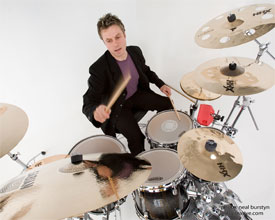 If someone is a complete beginner at the drums and has only been studying the instrument for a few months, I would suggest focusing on that instrument for a few years before introducing another one. I feel it is very important to have solid foundation on one before exploring another one.
Advertisement
If someone is a complete beginner at the drums and has only been studying the instrument for a few months, I would suggest focusing on that instrument for a few years before introducing another one. I feel it is very important to have solid foundation on one before exploring another one.
Advertisement
How important do I feel it is to learn another instrument? Well let’s look at all the advantages that I experienced. I started to learn to play the piano about fifteen years ago. The very first thing I noticed when I started taking lessons was that my reading in the treble and bass clef improved greatly especially reading chords as these notes would be grouped together.
This strength really helped me in sight reading drum charts. I noticed with advance rhythms or fills orchestrated around the kit it was easier for me to execute the part accurately first time through. So all around my sight-reading improved.
My independence and technique greatly improved. I would practice many warm up exercises such as chord inversions and scales at different tempos. I would notice my concentration level became deeper, greater independence from one hand to the next, and my muscles in my fingers became stronger. After practicing the piano for thirty minutes, if I picked up a pair of sticks I felt very loose, relaxed, and had some effortless chops. Advertisement
The most valuable benefit I gained from learning piano was the ability and comfort in reading a lead sheet. If I was given a lead sheet of a standard jazz tune from the Real Book on a gig I would have a much greater understanding of what the other players were doing, which made my contribution to the song easier and more musical. Even if I didn’t know the tune I could hear the chord changes and recognize the notes, which made it more comfortable and enjoyable playing with the band. There are some incredible drummers who are amazing pianists. Check out Jack DeJohnette or Kirk Covington. I saw these two perform a gig on piano and I was completed blown away.
David Stanoch
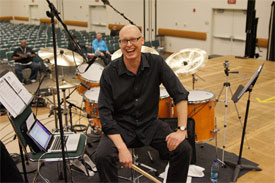 I believe it is important to find a balance. I totally get any drummer who is so obsessed with their passion for playing their drumset that nothing else seems to matter; I’ve been there. But I also understand the limitations that mindset can manifest for anyone looking to play with others or pursue a career in music from behind a set of drums.
I believe it is important to find a balance. I totally get any drummer who is so obsessed with their passion for playing their drumset that nothing else seems to matter; I’ve been there. But I also understand the limitations that mindset can manifest for anyone looking to play with others or pursue a career in music from behind a set of drums.
In general, I can break my students down into two categories. The first are those who grow up around musicians and play the drums in a manner often referred to as self-taught. They play with others more than they focus only on the drumset alone and usually have skills on other instruments as well. They usually come to me to increase their stylistic and technical awareness. The second are those who buy a drumset and play it, more often in isolation than in a setting with human interaction. Often the drumset is their only musical voice. They usually come to me to find balance in their expression and learn how to play in an ensemble setting. Advertisement
Make no mistake, the road to expression on the drumset requires thousands of hours of focused practice on everything from vocabulary to coordination, touch and technique, and that all requires a lot of shed time for sure. However, in the big picture, we serve primarily as an accompanist for others and sometimes a soloist as well.
Even as an accompanist, the level of experience and skill the drummer brings to the table can make or break the band. We must exert leadership qualities to help guide the band through a piece of music with conviction and clear direction. That doesn’t mean you have to be flashy or the center of attention, but you have to be focused on the song and the ensemble more than yourself to make it work by creating trust with your band mates which will translate into interest from your audience.
This, at the very least, requires knowledge of musical structure and song form; understanding how to navigate through the different sections of any piece of music and change gears in the most effective way. An understanding of chord structure and harmonic movement is incredibly helpful in this regard. Advertisement
As a soloist, all of the above helps any drummer outline a road map for making a musical statement that could be either improvised or through-composed, but having an understanding of intervals, scales, and melodic structure is also very helpful in creating melodic or even lyrical ideas that can help connect your soloing with your audience. It’s the “icing on the cake” and the thing people remember the most, like a “hook.”
To dabble in any other musical instrument reinforces these ideas quite naturally. After all, have you ever had the experience of being alone behind your drumset and someone says to you, “Play me a song”? What do you say? “Well, I’m a drummer, see, and…” People who play violin or piano or sax or guitar do not think twice in this situation and yet, with just a bit of knowledge (four semesters of music theory are not required here), you too, if asked, could play them a song! Have you heard Max Roach play his solo drumset compositions “Blues for Big Sid” or “The Drum Also Waltzes,” or Jeff Hamilton play “Caravan” or “A Night in Tunisia” on his kit”? How about Ari Hoenig playing just about any melody he wants on a drumset?
Although great skill and imagination go into those performances, there’s no magic involved. They simply understand the principals of harmony and melody as well as rhythm and refuse to accept the myth that the drumset is incapable of that level of musical expression. And so they create it. And so can you. Advertisement
I am often able to inspire my students with the simple, but often neglected, fact that the three elements that make up music—melody, harmony, and rhythm are all not so different. Really they are all one thing: vibrations that produce sound. These vibrations are related. Frequency is what separates them.
If my students understand that eighth notes move twice as fast as quarter notes and I demonstrate by playing quarters on the bass drum followed by eighths on the snare, I can then help them imagine that if I could play those quarter notes on the bass drum at 440 beats per second, they would produce a pitch known as A 440, a frequency most musicians tune their instruments to. If I could then play the snare drum twice as fast, at 880 beats per second, this would also produce an A pitch, but now an octave higher.
Rhythm is pitch slowed down in frequency. You go farther up this road through the overtone series and you find out things like the interval of a perfect fifth is the same as a three over two polyrhythm at a faster frequency. Everything is simply vibrations of sound and this fact sometimes helps level the playing field for a student struggling with their music theory because they only play drumset. It can make picking up another instrument less intimidating and more inviting. Advertisement
So, as for picking up another instrument, how about the bass as a suggestion? After all, who do we, as drummers, focus on creating a groove with more often than not in performance than the bass player? The foundation of music’s harmonic movement centers in the bass as well.
One big benefit of playing bass, as pointed out by drumming great Steve Jordan, in his instructional DVD, The Groove is Here, was rediscovering, as he first learned when playing tympani, that paying attention to the duration or length of the notes you play can help create a deeper groove.
Drums tend to be very staccato instruments by nature. Unless we measure rolls, choke cymbals or mute membranes (à la tympani), we tend to attack rhythm, but not hold the notes for their true value. Once you consider where the note ends or cuts off, you can also think more about the placement of your attack: on top, in the middle, or behind the beat. For example, drummer Jake Hanna gave the best verbal description I ever heard of how to swing in a rhythm section when he described how the drummer should attack his ride cymbal as if plucking the strings of the bass and the bassist should pluck as if sticking the cymbal. That type of teamwork, called playing “on top of the beat,” creates forward motion in the music, which can be done playing just quarter notes, and that’s what swing is all about! Advertisement
Jazz pianist Thelonious Monk once said, “Just because you’re the drummer doesn’t mean you have the best time in the band.” Think of how a pianist functions in ways similar to a drumset; the left hand covers what we typically would play on a kit with our feet, and the right hand covers what we might play with our sticks. Keep in mind that the pianist is also dealing with chords, melody, and notes of varying duration at all times, and it’s easy to see how their sense of rhythm would be sensitive to a drummer whose sense of time is not as developed and might be rushing or dragging the tempo. This perspective, combined with my desire to be as professional of a drummer as I can be, inspires me to tinker at my piano, even though I would never think of performing on it. I may not have the fluidity there that I do on the drums but the understanding is something I can use and benefit from greatly.
Remember also that you have another instrument inside you already—your voice. While it makes sense to practice with clicks to develop your inner-clock and have the flexibility to play along with sequenced tracks, it is important to remember that a human being is pretty well set up for rhythmic and melodic expression already, without the aid of any external man-made musical instrument.
You don’t need a drumset to use any of your four limbs to play rhythm or create a beat; in fact, you don’t even need the limbs. You can do it with only your voice, like a beat boxer! But if you choose to use your limbs to play rhythm or beats, you can also sing bass lines, vamps, or melodies all by yourself and you’ll sound like a one-man band. Advertisement
If you are attentive to the length of the notes you are singing, your time feel will develop organically and anyone with truly good time is also a good listener. You have to focus on something you’ll play along with, like another instrument or a click, and you have to be comfortable enough with yourself (knowing your own beat) so you can be flexible when working with others. No one plays time that is so rigid as to be inflexible and creates a groove.
Singing what you play, or what you’re playing your beat to, is great for developing your musicality on every level and, if you work on developing the ability to sing pitch, so much the better! There are lots of famous drummers who can sing lead or harmony. Why not you? It can sometimes make the difference in getting the gig or not!
If you don’t yet play another instrument but make music with friends, talk to one who plays an instrument you enjoy about swapping lessons. If you’re not in a band but have access to another instrument, look up some videos on YouTube and learn some basics. It can be a lot of fun. Advertisement
Myself, I’m presently back at work furthering my total musicality in this way. I started playing music on guitar at age seven. I learned the laws of music, scales, keys, time signatures, reading, etc., at an early age but I couldn’t make it groove. My eye to hand coordination was not fast enough. Without a strong sense of rhythm, melody and harmony lack shape and direction, and so my guitar teacher recommended I play drums in the school band to improve my rhythm. Once that happened I was so taken with drumming I dove completely into it exclusively until I studied music in college.
In college however, I honestly did not take full advantage of the resources available for my complete musical maturation because I was so focused on developing my voice on the drumset. I was “that guy” I mentioned back at the beginning.
While it could be easy to say, “I regret that now,” the truth is I did learn quite a bit about the art of music, although maybe not everything I wish I had, but, on the other hand, I took advantage of an incredible amount of opportunities to play constantly with world-class musicians from a wide spectrum of musical backgrounds and styles, which was something I really needed to do. That experience was irreplaceable; I was in a great environment for my voice on the drumset to develop, deepen and flourish, and, in fact, I’ve been filling in the blanks in my “musical gaps” beyond my drumming skills ever since anyway. Advertisement
My guitar playing, though quite rusty, still allows me a quick go-to source for working out basic melodic or chordal ideas when needed. There’s also subtler ways it influences my drumming as well. For example, my love at a young age for the majestic cadence from D7 to G on the guitar directly influenced my preference, when using two crash cymbals on my kit, for having the lower-pitched cymbal on my left and the high-pitched on my right, with a basic interval of a fifth, or seventh, resolving up to the tonic as the idea behind their placement.
My continued overall musical growth is quite important to me. Among my current professional pursuits, I am the Musical Director for vocalist Shaun Johnson, an Emmy-winning recording and performing artist, and his Big Band Experience group. It’s an exciting position, which constantly takes all the professionalism I can muster, including and beyond “just” playing the drums.
Certainly, if you’re aiming for a career in music and you play drumset but no other instruments, I believe a broader perspective is important to consider. You needn’t be an expert musical theorist but you do need to speak the language and there’s a lot of ways to both excel and find your personal comfort level in taking that leap. Advertisement
The advantages of broadening your instrumental awareness outweigh the drawbacks. In this day and age of tighter budgets, where time is short and people still dream big, it’s possible that you might get a shot at the gig of your dreams. If that happened and it came down to you—great drummer, nice person, dependable—versus another player who was an equally dependable, great drummer, and nice person, but could also bring to the table other useful instrumental or writing and arranging skills that you do not possess, who do you think would get the call?
TO VIEW PREVIOUS EDUCATION TEAM QUESTIONS CLICK HERE.


